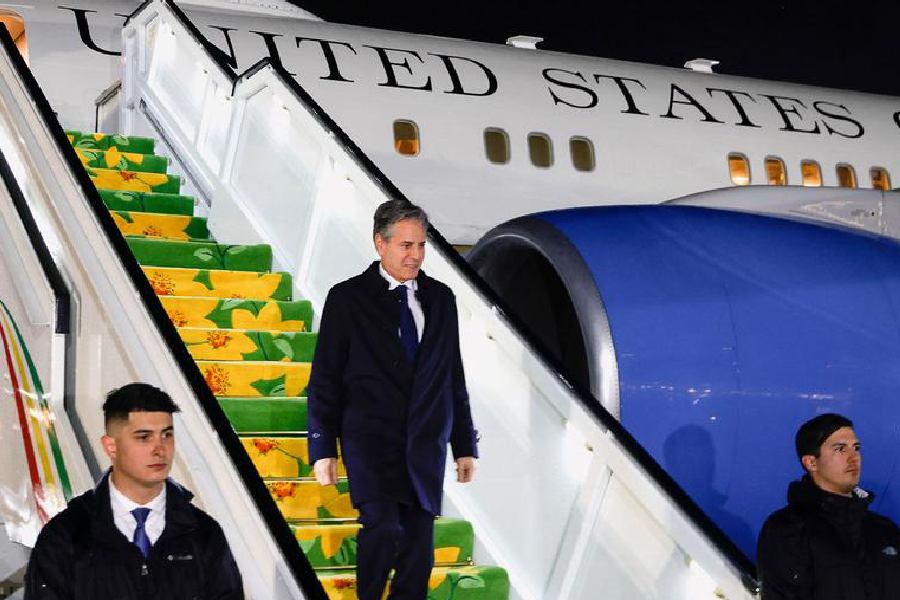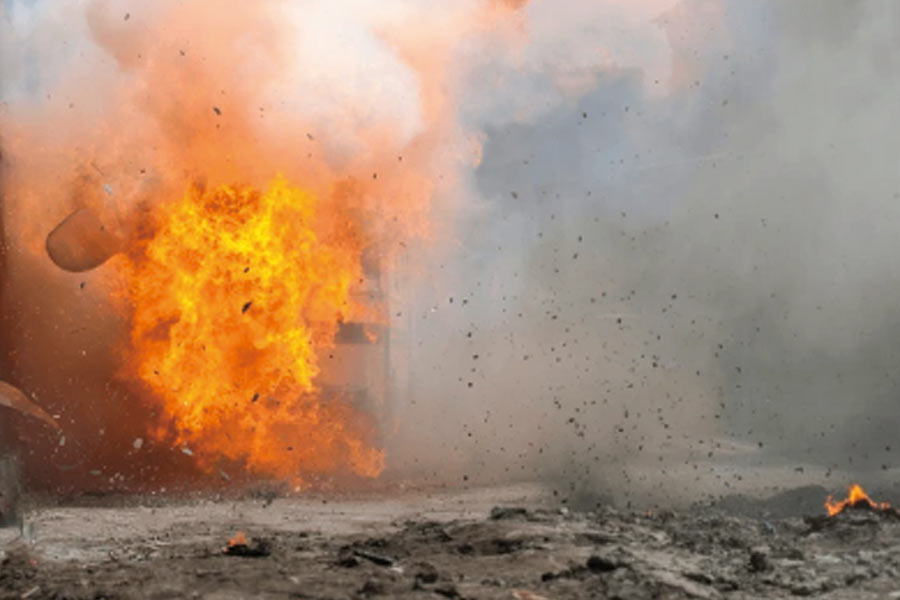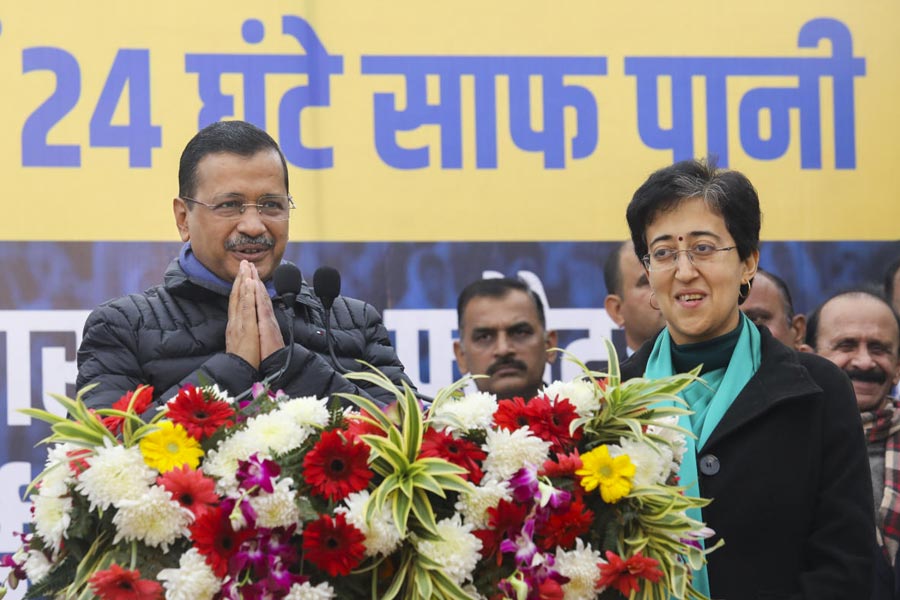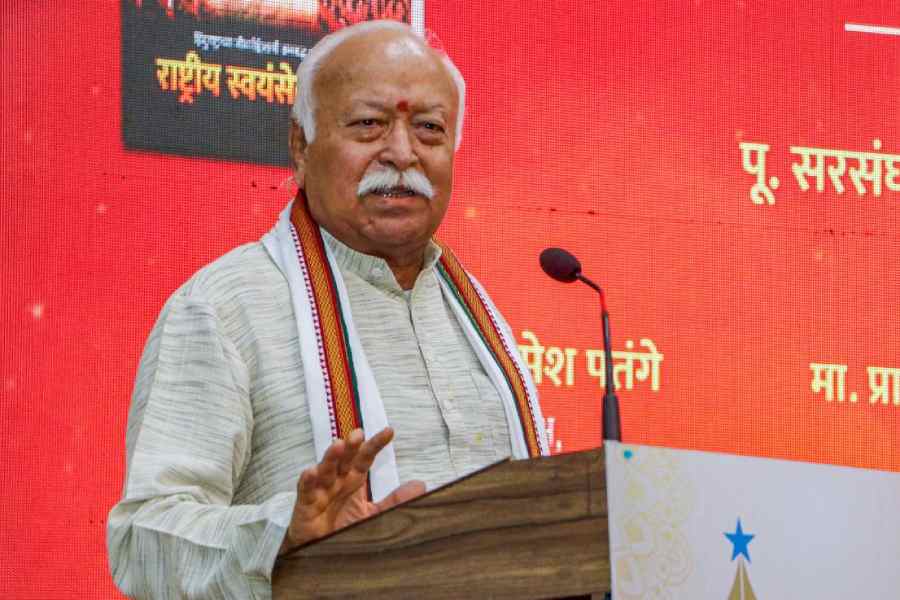"Managing the competition with China so that it doesn't turn into a conflict" — that's what US President Joe Biden just asked his top diplomats to do at a White House reception a few days before US Secretary of State Antony Blinken heads to Beijing. Blinken's main mission during his two-day visit to China over the weekend is to reestablish reliable communication lines to Beijing.
Washington and Beijing on collision course
A near collision between a Chinese and a US military vessel in the Taiwan Strait two weeks ago demonstrated how close both sides can easily get to military escalation.
It was a Chinese maneuver the US criticized as "unsafe and unprofessional," but whichChina insisted was "lawful" and "safe."
Even more worrying than the risk of collision between the two military ships was the fact that the world's two superpowers communicated through the media instead of direct lines. Beijing's military still refuses to pick up the phone to calls by the Pentagon.
The disconnect increases the risk of potentially devastating misunderstandings. Shortly after the incident, US Secretary of Defense Lloyd Austin told the annual Shangri La forum in Singapore the US would not "flinch in the face of bullying or coercion" by China. At that very summit, his Chinese counterpart, Li Shangfu, refused to meet Austin for a bilateral on the sidelines — as would have been expected from the biggest powers in the room.
Washington's refrain from making this a diplomatic incident underline its concern of any further escalation. "I think this is going to be a long and arduous process from the ground up to reestablish communication channels with Beijing," Noah Barkin, a China analyst and senior adviser for Rhodium Group research institute, told DW. He expects Blinken's China visit to be part of a "delicate process" with no big results.
'Robust' exchange between China and US
The US State Department has billed the visit as a series of "robust" exchanges behind closed doors.
Blinken and China's Foreign Minister Qin Gang are expected to discuss several issues ranging from Taiwan and China's support for Russia over Ukraine, to reports of a Chinese spy facility in Cuba.
The White House coordinator for Indo-Pacific affairs, Kurt Campbell, believes "both sides have an interest in maintaining consistent, clear and open lines of communication" as the overarching aim of the visit. And yet the two sides seem to have different takes on the merit of the upcoming talks.
"The Chinese still view contacts, exchanges, summits as a favor they grant," Dean Cheng, a senior adviser at the US Institute of Peace, a think tank, told DW.
The fact that the US has not published its findings on the spy balloon that saw Blinken postpone his first scheduled visit in February, is widely seen as a concession by Washington that allowed for the current visit to go ahead in the first place.
After all, it comes despite increasing Chinese irritation at Washington's engagement in a regon Beijing regards as its backyard.
Competing with China in Asia
US President Biden declared a "new era" of cooperation in the Indo-Pacific last year and backed it up with an economic framework involving more than a dozen Asian states, including Japan, the Philippines, and South Korea.
Just recently the US also secured access to four more military bases in the Philippines alone. China sees this new dynamic in Washington's Asia policy as a constant provocation.
This will likely play a role when Blinken is expected to press Qin Gang on Beijing's support for Russia.
The US remains concerned that China may supply Russia with weapons against Ukraine, but so far, the White House says it has no evidence of actual deliveries taking place.
Beijing is likely to ask why it should consider delivering arms to Russia any different to the US and its allies supplying weapons to the Ukrainian side, according to Dean Cheng.
A senior US official describes Blinken's mission as "a really critical series of engagements" that come "at a crucial time" with a visit by President Biden to Beijing, which is not yet officially discussed but is widely expected to take place later this year. The hope is that such a summit could go some way towards stabilizing the standoff over Taiwan.
Nobody wants a conflict
"I don't think anybody wants a conflict in the Taiwan Strait. But sending the right messages is difficult, especially when Beijing sees just about everything that's being done on Taiwan as a provocation," China analyst Barkin underlined.
Since the appearance of the Chinese spy balloon in February, US members of Congress have been outbidding each other in their "tough-on-China" rhetoric. This saw House Speaker Kevin McCarthy follow in the footsteps of his Democrat Predecessor Nancy Pelosi by meeting Taiwan's President Tsai Ing-Wen.
Faced with export controls on high-tech chips and other future technology, the Chinese side is expected to ask for concessions from Washington, particularly on the issue of technology controls, Barkin said. But given the current anti-China climate in Congress, he doesn't expect the US to "make any promises on that front."
Despite the export bans, Barkin sees trade as the most promising source of stability as "the US and its allies are wrestling with how best to deter a conflict."
US technology export bans against China launched last October range from software to equipment used to produce advanced computer chips. Cheng describes it as a "shock" to the Chinese leadership to discover just how "remarkably dependent on Western software and hardware" they are. China is expected to seek assurances that the US will refrain from further export restrictions, something the US is unlikely to commit to.
While Washington has adopted the European term of "de-risking" to describe its drive to wean itself and its allies off supply chain and product dependence on China, Beijing also has an interest in talking to the US to reassure global investors, Barkin pointed out. The world's largest and second largest economies remain closely intertwined as their strategic interests to compete for world leadership increasingly sets them against each other.
Human rights
When Blinken and Qin Gang sit down with their delegations facing each other across the table, this will also mark a face-off of fundamentally different political value systems — the world's most powerful democracy facing the world's most powerful authoritarian regime.
Dozens of human rights organizations signed a letter ahead of the visit calling on Blinken to raise a long list of human rights concerns ranging from what the US has officially recognized as genocide of the Uyghurs to press freedom.
While the US secretary of state let it be known that he raises US values as a matter of standard procedure, the US special climate envoy recently drew praise from China and criticism back home for dismissing a request for comment on China's human rights record as not his "lane." In an October interview, John Kerry said that "climate should not be part of the bilateral differences" between the US and China.
Beijing is expected to try and expand on more issues of common interest to be treated separate from the question of human rights. Blinken faces nothing less than the challenge of reasserting US positions while bridging a vast diplomatic disconnect. The stakes are high in what amounts to a geopolitical game of chess.











